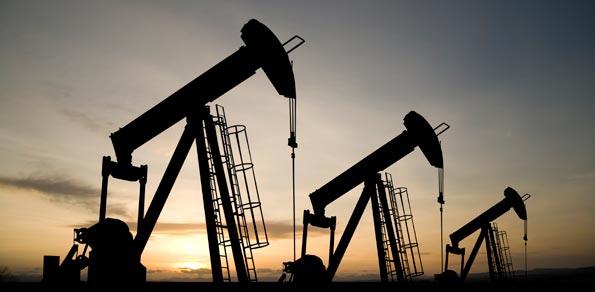The United States is the world’s largest producer of ethanol fuel. The U.S. produced 50.0 billion litres of ethanol fuel in 2010. Ethanol fuel is mainly used in the U.S. as an oxygenate to gasoline. In 2009, from all the ethanol fuel consumed in the country, 99% was consumed as ethanol in gasohol. Most U.S. ethanol is produced from corn and the required electricity for the distilleries originates from coal plants, the debate is on going as to how sustainable corn-based bio-ethanol is in replacing fossil fuels in vehicles. The objections and controversy relates to the vast amount of arable land required for crops and its impact on world grain supply, direct and indirect land use change effects, as well as issues regarding the energy balance and carbon intensity when considering the full life cycle of ethanol production.
The catalyst for the Arab Spring revolution is often credited to twenty six year old Mohamed Bouazizi who was living in the provincial town of Sidi Bouzid, in Tunisia, he had a university degree but no work. In an attempt to make a living he began to sell fruit and vegetables in the streets without a licence. The Tunisian authorities stopped him and confiscated his produce, in desperation he set himself on fire on Saturday December 18th 2010. Rioting then ensued and security forces quickly sealed off the town. On the following Wednesday another jobless young man in Sidi Bouzid climbed an electricity pole, shouted “no for misery, no for unemployment”, then touched the wires and electrocuted himself. On Friday September 16th 2011, outside a bank in Piraeus (a major sea port in Greece), a small businessman doused himself in petrol and set himself on fire. His desperate protest was apparently in anger at his failed business and lack of bank assistance.
The myth perpetuated by the compliant western media is that the Arab spring was a reaction to totalitarian regimes singularly, when in fact the total failure of the economy in certain Arab states and neighbouring African regions causing; starvation, destitution and desperation was as big a factor as the desire for regime change. The Arab spring revolution has, in a previously unthinkable parallel, now extended to Israel. The mainstream media has largely ignored the Tel Aviv demonstrations where huge numbers have gathered over successive weekends to protest at an economy that has derailed. Rampant inflation, house prices and rents that are beyond the reach of the Israeli middle class, stagnating wages, huge levels of unrecorded unemployment and an educated middle class who, distrustful and angry with their political leaders, are now demanding change is causing peaceful social unrest. Estimates put the numbers on the Tel Aviv streets at circa 300,000, considering the population measures circa 3.3 million that’s a huge number that have taken to the streets to protest.
It’s become increasingly difficult for regimes and governments to avoid the discussion regarding the true levels of inflation affecting staple foods and basic items and to hide the cause of that inflation. The majority of USA, UK and European citizens may simply shrug their shoulders and emit a weary sigh when paying at the supermarket check out, or at the petrol pump as they survey the supposed 5% RPI on their receipts. However, to vast swathes of the population in the Middle East or Africa that spike of inflation on basic goods is literary the difference between life or death, starvation or existence. Whilst the UK govt may calculate their inflation figures using a basket of goods including mobile ring tones, broadband, sky tv and plasma screen televisions such luxuries do not form part of the basket of choices in poorer parts of the globe. Brent crude has stubbornly remained above $100 a barrel for approaching six months, basic food commodities have spiked remorselessly, whilst UK motorists may cope with a litre of petrol rising by 30% over three years (as their real and inflation adjusted salaries remain static) poorer global citizens have no coping strategy. With food, fuel and accommodation accounting for nearly all of their costs, from a position of a very poor wage, the increased cost of grain and fuel is life threatening.
The global inflation experienced since 2008 is as a direct consequence of the subsequent quantitative easing the USA, UK and European policy makers indulged in to recapitalize major financial institutions in order to “save the system”. The twinned policy of zirp undoubtedly caused this excess liquidity to rush into speculative commodities and equities. Whilst equity values may correct the unforeseen and unintended consequence is that commodity prices may not fall. If oil remains at circa $100 a barrel, for a further period of six to twelve months, the ‘double dip’ recession looks a certainty.
Whilst the leading European finance ministers meet to discuss further mechanisms to shore up an international banking system, which finds itself once more on a precipice, they’re unlikely to openly debate (for public consumption) the further dreadful consequences more QE will create. Irrespective of more QE creating unlimited amounts of dollars, through central banks for a three month period, will also indirectly push up commodity prices and severely deteriorate the quality of live and survival prospects of millions. When Mr Geithner returns to the car obsessed USA perhaps he’ll reflect on the journeys most Americans take. As his armoured cavalcade exits the airport he may observe those going to fast food restaurants, powered by cars on corn ‘foodstuff’ and consider that his “job well done” this weekend with his European counterparts is in fact a temporary sticking plaster for Europe and the USA, but a potential fatal wound for poorer and developing nations.





